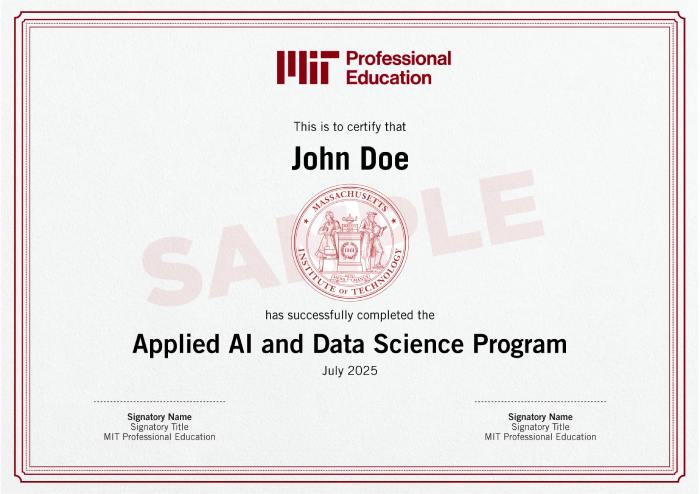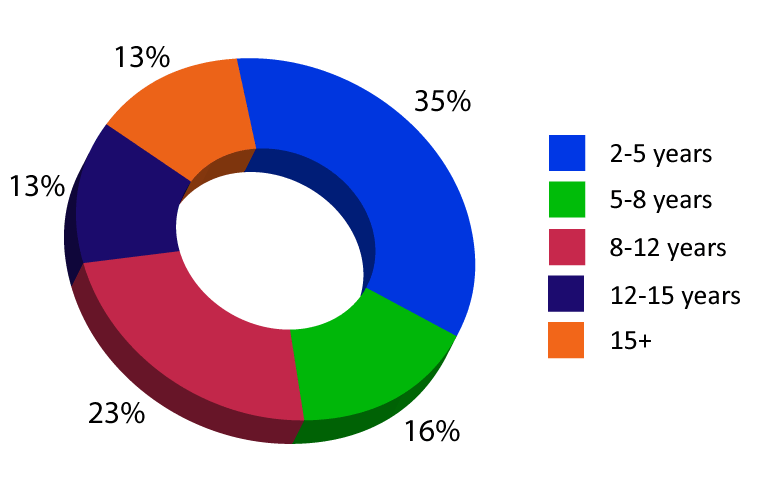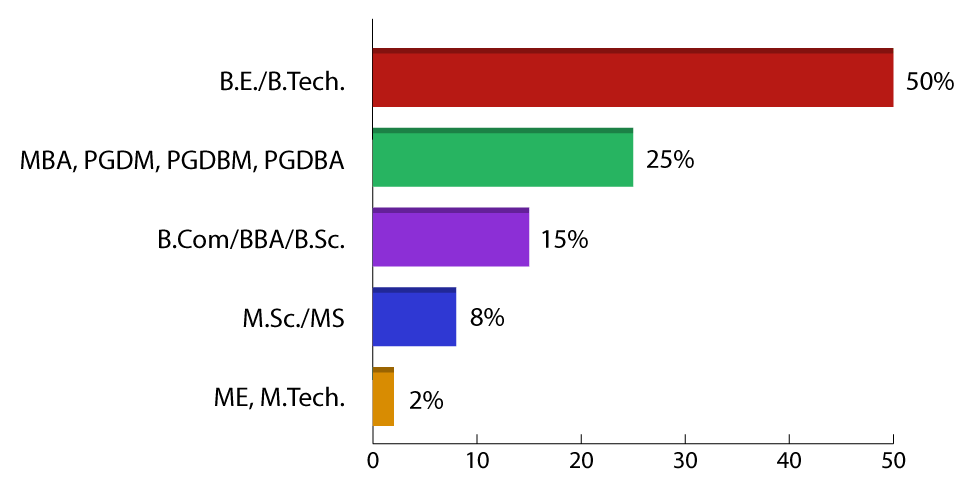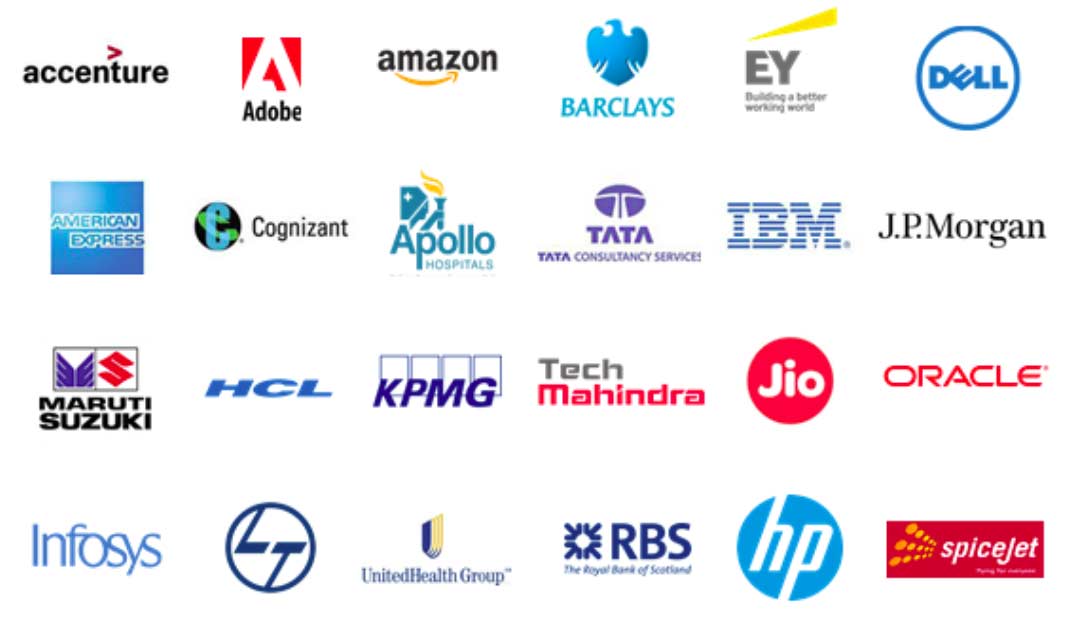Learn more about the course
Get details on syllabus, projects, tools, and more

Applied AI and Data Science Program
Application closes 11th Sep 2025
Distinctive features
-

Low-code approach
Build AI and data science workflows with minimal coding using intuitive tools. Perfect for professionals looking to advance their proficiency in AI without deep programming experience.
-

GenAI-infused curriculum
Covers the latest in Generative AI: Transformers, RAG, Prompt Engineering, and Agentic AI. Designed for real-world business applications.
Unlock real-world impact
Elevate your career in AI and data science
Build your AI and data science proficiency with the latest GenAI tools.
-
Apply AI and data science to solve real-world business problems
-
Learn to apply techniques across domains such as NLP, GenAI, Computer Vision, and Recommendation Systems
-
Learn effective data representation for predictive modeling
-
Create an industry-ready ePortfolio
Earn a certificate of completion from MIT Professional Education
Key program highlights
Why choose the Applied AI and Data Science Program
-

Live online sessions with MIT faculty
Engage in live online sessions with renowned MIT faculty for interactive insights.
-

Low-code approach
Build AI and data science skills using low-code tools and techniques, enabling hands-on learning without heavy coding.
-

Latest AI tech stack
Explore the latest Generative AI models, including Prompt Engineering and RAG modules.
-

Personalized mentorship by experts
Benefit from weekly online mentorship from Data Science and AI industry experts.
-

Build an industry portfolio
Work on 50+ case studies, projects, and a capstone project solving real business problems with AI.
-

Earn a globally recognized credential
Earn 16 CEUs and a certificate of completion from MIT Professional Education upon completion.
Skills you will learn
PYTHON
DATA ANALYSIS
DATA VISUALIZATION
MACHINE LEARNING
ARTIFICIAL INTELLIGENCE
COMPUTER VISION
DEEP LEARNING
GENERATIVE AI & PROMPT ENGINEERING
RETRIEVAL AUGMENTED GENERATION
AGENTIC AND ETHICAL AI
PYTHON
DATA ANALYSIS
DATA VISUALIZATION
MACHINE LEARNING
ARTIFICIAL INTELLIGENCE
COMPUTER VISION
DEEP LEARNING
GENERATIVE AI & PROMPT ENGINEERING
RETRIEVAL AUGMENTED GENERATION
AGENTIC AND ETHICAL AI
view more
Build your AI and data science proficiency
-
86% Execs Report
AI critical to firms
-
11.5 Mn+
Jobs in data by 2026
-
69% Global Leaders
Say AI #1 for growth
-
$103.5 Bn
Analytics market size
- Overview
- Learning Journey
- Curriculum
- Projects
- Tools
- Certificate
- Faculty
- Mentors
- Career support
- Fees
- FAQ

This program is ideal for
Data professionals and managers seeking AI-driven insights
-
Extracting Insights from Data
Professionals looking to uncover patterns and derive meaningful, actionable insights from large volumes of data and build solid AI and Data Science solutions.
-
Driving Strategic Impact
Professionals aiming to leverage AI and data science for business strategies, improve decision-making, and lead AI and Generative AI initiatives.
-
Building AI Expertise
Those interested in strengthening their understanding of AI, generative AI, and machine learning through hands-on projects and expert-led learning.
-
Deepening Technical Skills
Professionals with a background in technical management, business intelligence analysis, data science management, IT, management consulting, or business management, including data science and AI enthusiasts.
Ready to take the next step?

-

Explore a sample course from our faculty
-

Know more about the case-studies & projects
-

Experience a sample mentorship session with an lndustry expert
Application closes in:
4
Days
0
6
Hrs
0
5
Mins
3
9
Secs

-

Get a detailed program overview
-

Understand how this program can help achieve your career goals
-

Get more information about the enrollment process & next steps
50,000+ learners found this helpful
Syllabus designed for professionals
Designed by MIT faculty, the curriculum for the MIT Professional Education Applied AI and Data Science Program (formerly known as the Applied Data Science Program: Leveraging AI for Effective Decision-Making) equips you with the skills, knowledge, and confidence to excel in the industry. It covers key technologies, including artificial intelligence, machine learning, deep learning, recommendation systems, ChatGPT, applied data science with Python, generative AI, and more. The curriculum ensures you are well-prepared to contribute to artificial intelligence and data science initiatives in any organization.
-
Low-Code
Approach
-
Live Online Sessions
by MIT Faculty
-
10+
Emerging Tools and Technologies
Pre-Work: Introduction to Data Science and AI
This module is designed to help you get the most out of the program. We begin an introduction to foundational topics in Python programming, statistics, the Data Science lifecycle, and the evolution of AI and Generative AI. This module is designed to prepare all learners, regardless of prior experience, to confidently engage with the comprehensive curriculum ahead.
- Introduction to the World of Data
- Introduction to Python
- Introduction to Generative AI
- Applications of Data Science and AI
- Data Science Lifecycle
- Mathematics and Statistics behind DS and AI
- History of DS and AI
Weeks 1-2: Foundations – Python and Statistics
In this module, you will build essential programming and statistical skills. Learn to manipulate, visualize, and analyze datasets using:
- NumPy arrays and Functions
- Pandas Series and DataFrames
- Pandas Functions
- Saving and loading datasets using Pandas
- Data Visualization using Seaborn, Matplotlib, and Plotly
- Introduction to Inferential Statistics
- Fundamentals of Probability Distributions
- The Central Limit Theorem
- Hypothesis Testing
- Univariate Analysis
- Bivariate Analysis
- Missing Value Treatment
- Outlier Treatment
Week 3: Data Analysis and Visualization
In this module, you will learn unsupervised learning and dimensionality reduction techniques for pattern discovery.
- Understanding Classification and Clustering Methods
- Supervised Learning
- K-Means Clustering
- Dimensionality Reduction Techniques: PCA and t-SNE
Week 4: Machine Learning
In this module, you will build foundational machine learning models and understand their evaluation.
- Introduction to Supervised Learning
- Linear and Non-Linear Regression
- Causal Inference
- Regression with High-Dimensional Data
- Regularization Techniques
- Model Evaluation
- Cross-Validation
- Bootstrapping
Week 5: Revision Break
Week 6: Practical Data Science
In this module, you will apply real-world techniques in classification, ensemble learning, and forecasting.
- Introduction to Classification
- Logistic Regression
- Decision Trees
- Random Forest
- Type 1 Error & Type 2 Error in Classification Problems
- Hypothesis Testing
Week 7: Deep Learning
In this module, you will explore neural networks and their applications in computer vision and language processing.
- Introduction to Deep Learning
- Neural Network Representations (One Hidden Layer, Hidden Neurons, Multi-class Predictions)
- Introduction to Computer Vision (ANN vs CNN, Basic Terminologies, CNN Architecture)
- Transfer Learning
- Hypothesis Testing
Week 8: Recommendation Systems
In this module, you will design intelligent systems for personalization using a variety of recommendation techniques.
- Introduction to the Recommendations
- Content-Based Recommendation Systems
- Collaborative Filtering & Singular Value Thresholding
- Matrix Estimation Meets Content-Based
- Matrix Estimation Over Time
Week 9: Project Week
In this module, you will work independently on a hands-on project that allows you to apply program concepts to a domain of your choice.
Week 10: Generative AI Foundations
In this module, you will understand the architecture, evolution, and foundations of Generative AI.
- Origins of Generating New Data
- Generative AI as a Matrix Estimation Problem
- LLM as a Probabilistic Model for Sequence Completion
- Prompt Engineering
Week 11: Business Applications of Generative AI
In this module, you will learn how Generative AI and Agentic AI can drive business transformation.
- Natural Language Tasks with Generative AI
- Summarization, Classification and Generation
- Retrieval Augmented Generation (RAG)
- Agentic AI
Weeks 12–14: Capstone Project
For your Capstone Project, you will solve a real-world business challenge using techniques from across the program. Projects are guided and evaluated by mentors and reviewed by industry experts.
Module 1 - Introduction to Generative AI
The module covers :
- Overview of ChatGPT and OpenAI
- Timeline of NLP and Generative AI
- Frameworks for understanding ChatGPT and Generative AI
- Implications for work, business and education
- Output modalities and limitations
- Business roles to leverage ChatGPT
- Prompt engineering for fine-tuning outputs
- Practical demonstration and bonus section on RLHF
Module 2 - ChatGPT: The Development Stack
The module covers :
- Mathematical Fundamentals for Generative AI
- VAEs: First Generative Neural Networks
- GANs: Photorealistic Image Generation
- Conditional GANs and Stable Diffusion: Control & Improvement in Image Generation
- Transformer Models: Generative AI for Natural Language
- ChatGPT: Conversational Generative AI
- Hands-on ChatGPT Prototype Creation
- Next Steps for Further Learning and understanding
Work on hands-on projects and case studies
Engage in practical projects and program-specific case studies using emerging tools and technologies across sectors
-
50+
Case Studies
-
2 Projects
Industry-Relevant
-
Capstone Project
Hands-on Learning
Master in-demand AI and Data Science tools
Benefit from hands-on experience with 10+ top AI and Data Science low-code tools
Earn a Professional Certificate in Applied AI & Data Science
Get a certificate of completion from MIT Professional Education and showcase it to your network

* Image for illustration only. Certificate subject to change.
Learn from MIT faculty
Interact with our mentors
Interact with dedicated and experienced AI and data science experts who will guide you through your learning journey
Get industry-ready with dedicated career support
-
Get dedicated career support
Access personalized guidance to strengthen your professional brand.
-
1-on-1 career sessions
Interact with industry professionals to gain actionable career insights.
-
Resume & LinkedIn profile review
Showcase your strengths with a polished, market-ready profile
-
Build your project portfolio
Build an industry-ready portfolio to showcase your skills
Course fees
The course fee is 3,900 USD
Advance your career
-

Apply AI and data science to solve real-world business problems
-

Learn to apply techniques across domains such as NLP, GenAI, Computer Vision, and Recommendation Systems
-

Learn effective data representation for predictive modeling
-

Create an industry-ready ePortfolio
Registration process
Our registrations close once the requisite number of participants enroll for the upcoming batch. Apply early to secure your seat.
-

1. Fill application form
Register by completing the online application form.
-

2. Application screening
A panel from Great Learning will assess your application based on academics, work experience, and motivation.
-

3. Join program
After a final review, you will receive an offer for a seat in the upcoming cohort of the program.
Eligibility
- Exposure to computer programming and a high school-level knowledge of Statistics and Mathematics
Batch start date
-
Online · To be announced
Admissions Open
Frequently asked questions
Is the program completely virtual?
Yes, the program has been designed keeping in mind the needs of working professionals. Thus, you can learn the practical applications of data science from the convenience of your home and within an efficient 12-week duration.
Is it necessary to bring my own laptop?
The learners are required to bring their own laptops; however, the necessary technology requirements shall be shared during the enrollment process.
How will my performance in the program be assessed?
The program has a broad scope, is challenging, and uses a continuous evaluation system. In order to evaluate a learner’s progress throughout the program, quizzes, case studies, assignments, and project reports are used.
What is the duration of this Applied Data Science certificate program?
The duration of this program is 12 weeks, which includes recorded lectures from award-winning MIT faculty. Each learner mandatorily needs to submit 3 projects that include a project for the first course - Foundations for Data Science, 1 project of their choice out of the 5 projects associated with core courses taught by MIT Faculty, and a 3-week Applied Data Science capstone project.
Will I receive a transcript or grade sheet after completion of the program?
No, Applied Data Science Program is an online professional certificate program offered by MIT Professional Education in collaboration with Great Learning. Since it is not a degree/full-time program offered by the university, therefore, there are no grade sheets or transcripts for this program. You will receive marks on each assessment to test your understanding and marks on each module to determine your eligibility for the certificate.
Upon successful completion of the program, i.e., after completing all the modules as per the eligibility of the certificate, you are issued a certificate from MIT Professional Education.
What certificate will I receive after completing the Applied Data Science Program from MIT Professional Education?
Upon successfully completing this program, learners will secure a professional certificate in Applied Data Science from MIT Professional Education.
What will happen if I can’t make it to a live session?
These live sessions will be recorded and posted on the LMS (Learning Management System) so that learners who couldn’t make it to a session or wish to attend it later can do so by watching the uploaded recordings.
Who will teach this Applied Data Science Program?
This program is taught by renowned MIT faculty who possess several years of experience and come highly recommended. Along with the teaching staff, the course also has highly qualified industry mentors who will direct you through live, personalized mentoring sessions as you work on hands-on projects.
What languages and tools will I learn in this program?
During this program, learners will gain proficiency in the most in-demand programming languages and tools, including Python, NumPy, Keras, TensorFlow, Matplotlib, and Scikit-Learn, among others.
What is unique about this Applied Data Science course syllabus?
This course syllabus is designed by considering the following aspects:
-
Renowned MIT faculty carefully crafted the curriculum to provide learners with industry-relevant tools and techniques and apply them to real-world problems.
-
The curriculum of this course covers essential Data Science techniques to deal with complex problems and prepare data-driven decision-makers for the future.
-
Learners will explore critical concepts of Data Analysis and Data Visualization, Machine Learning, Deep Learning, and Neural Networks.
-
The theory behind recommendation systems and their application to various sectors are also covered in the course material.
What is the program structure?
The MIT Applied Data Science Program lasts 12 weeks and is structured as follows:
- 2 Weeks: Foundational courses on data science with Python and Statistical Science
- 6 Weeks: A core curriculum that includes hands-on applications and problem-solving, involving 58 hours of live virtual sessions by MIT faculty and industry experts
- 1 Week: Project submissions
- 3 Weeks: Final, integrative MIT Professional Education Applied Data Science capstone project
Note: The live virtual classes with MIT professors will occur on Mondays, Wednesdays, and Fridays at 9:30 AM EST.
What are the benefits of choosing this Applied Data Science course from MIT Professional Education?
This course is an excellent choice for those seeking knowledge and skills in Applied Data Science. The benefits of choosing this course from MIT Professional Education are as follows:
- Learn from distinguished MIT faculty through live online classes in the comfort of your home.
- Boost your career transition with 1-on-1 career counseling, a review of your resume and LinkedIn profile, and an online portfolio that includes six hands-on projects and a 3-week capstone project.
- Earn a Certificate of Completion from MIT Professional Education.
- Take advantage of live mentorship from industry professionals on the application of faculty members' concepts.
- Earn 3.0 Continuing Education Units (CEUs) on successful program completion.
What is the ranking of the Massachusetts Institute of Technology (MIT)?
MIT is ranked #1 university globally by QS World University Rankings 2023 and #2 in the best global universities in the U.S. News & World Report 2022-2023.
What is the Applied Data Science Program offered by MIT Professional Education?
The MIT Professional Education Applied Data Science Program is an all-encompassing course tailored to meet the learning needs of professionals seeking to advance their careers, tackle complex problems with innovative solutions, and contribute to a better future.
The program combines state-of-the-art online technology with traditional classroom instruction, fostering participation and teamwork and improving learning outcomes. Over 12 weeks, participants can enhance their data analytics skills by profoundly understanding the theories and practical applications of cutting-edge techniques, including supervised and unsupervised learning, regression, time-series analysis, neural networks, recommendation engines, and computer vision.
What is the required weekly time commitment?
For 5 weeks of MIT Faculty live lectures, each week involves:
-
6 hours of live virtual sessions by MIT Faculty (Monday, Wednesday, and Friday)
-
4 hours of mentored learning sessions (2 sessions every weekend)
-
5 to 8 hours of self-study and practice (based on your background)
This amounts to an average time commitment of 15-18 hours per week.
For the remaining 7 weeks, an average time commitment of 12-16 hours per week is expected from the learners, which includes foundation/conceptual sessions, mentor learning sessions, capstone project work, self-study, and practice.
What will the timing of the live virtual sessions be?
The live virtual sessions with MIT faculty will be held on Mondays, Wednesdays, and Fridays at 9:30 AM EST. The mentorship sessions with industry experts will be held in small groups of learners on weekends. The exact timings will be determined based on the time zones of the learners in a particular mentorship group.
Why should I choose this Applied Data Science Program from MIT Professional Education?
MIT Professional Education is a distinguished platform that provides specialized and advanced applied data science programs, offering access to MIT's world-renowned research, knowledge, and expertise to working professionals in the fields of science and technology. As a critical component of MIT's vision, MIT Professional Education fulfills the mission of connecting practitioner-oriented education with industry and integrating industry feedback and knowledge into MIT's education and research.
What is the refund policy for this program?
Please note that submitting the registration fee does constitute enrolling in the program, and the below cancellation penalties will be applied. If you are unable to attend your program, please review our dropout and refund policies below:
-
Dropout requests received within 7 days of enrollment and more than 42 days prior to the commencement of the program will incur no fee. Any payment received will be refunded in full.
-
Dropout requests received more than 42 days prior to the program but more than 7 days after the acceptance are subject to a cancellation fee of USD 250.
-
Dropout requests received 22-41 days prior to the commencement of the program are subject to a cancellation fee equal to 50% of the program fee.
-
Any dropout requests received fewer than 22 days prior to the commencement of the program are subject to a cancellation fee equal to 100% of the program fee.
-
No refund will be made to those who do not engage in the program or leave before completing a program for which they have been registered.
What are my payment options?
Candidates can pay the course fee through Bank Transfer and Credit/Debit Cards. They can also avail PayPal payment options.
For further details, please get in touch with us at adsp.mit@mygreatlearning.com.
What is the course fee to pursue this Applied Data Science Program?
This professional course costs USD 3900, which candidates can pay through Credit/Debit Cards and Bank transfers. For further details, please get in touch with the Great Learning team.
Are there any extra costs associated with buying books, virtual learning resources, or license fees?
No. Through the Learning Management System (LMS), learners can access all the necessary learning materials online. There will be a list of recommended books and other resources for your in-depth reading pleasure because these fields are broad and constantly changing, so there is always more you can learn.
Can my employer cover the program fee?
We welcome corporate sponsorships and can help you through the process.
[For more information, please write to us at adsp.mit@mygreatlearning.com or +1 617 468 7899]
Are there any prerequisites for this Applied Data Science Program from MIT Professional Education?
You should possess a working knowledge of computer programming and statistics.
What if I do not have the required programming and statistics experience?
The prerequisites of the program include working knowledge of programming and statistics. Suppose you do not possess either (or both) of them. In that case, you will have to put in extra effort to learn them before the program's commencement in order to cope with the curriculum designed by MIT Professional Education.
We, from Great Learning, will provide you with content that can be useful in understanding the fundamentals of programming (Python) and statistics. However, you would be required to put in extra effort and hours to complete the programming assignments.
What is the deadline to enroll in this Applied Data Science Program?
The applications go through a rolling process that closes when the required number of seats in the cohort is filled. Please submit your application as soon as possible to boost your chances of getting a seat.
What is the application process to pursue this online Applied Data Science Program from MIT Professional Education?
Candidates must fulfill the eligibility requirements listed above to enroll in this course. The following is the typical application procedure for those candidates who qualify:
- Step-1: Application Form
Candidates must fill out their online application form.
- Step-2: Application Screening
Upon receiving the application, the program team will review it to determine your fit with the program.
- Step-3: Program Enrollment
If chosen, candidates will be given an offer for the upcoming cohort. By paying the fee, they can reserve their seats.
What are the other benefits that candidates acquire upon taking up this program?
Upon the successful completion of this program, learners become a part of MIT Professional Education's alumni community group and can access alumni benefits, that include a 15% discount towards any short programs offered by MIT Professional Education.
Are Data Science and Applied Data Science the same?
No, Data Science and Applied Data Science are different.
Data Science is a broad field that involves techniques and processes for gathering and analyzing data to generate insights, predictions, and strategies. It includes topics such as machine learning, artificial intelligence, and statistics.
Applied Data Science is the practice of using Data Science principles in different areas, such as e-commerce, healthcare, finance, and marketing. It focuses on utilizing data-driven approaches to design, develops, and deploy solutions to complex business problems. It focuses on the practical application of Data Science principles to derive insights and add value to different sectors of the economy.
What is the demand for Applied data scientists?
The demand for Applied Data Scientists has seen massive growth over the past few years and is most likely to increase the graph in the upcoming years. Glassdoor’s research says that the Data Scientist role is the #3 job in the United States in 2022. According to a study by the U.S. Bureau of Labor Statistics, the demand for Data Scientists is expected to rise 36% by 2031, which is much quicker than the average for all the other occupations. Data Scientists are one of the fastest-growing jobs in the world.
Is Applied Data Science worth it?
Yes, Applied Data Science is absolutely worth it! Applied Data Science involves the application of Data Science principles and practices to solve real-world problems. With Applied Data Science, you can use data to inform business decision-making, optimize complex systems, and make products and services more effective.
Applied Data Science is an essential skill that can help you stand out in the job market and give you the knowledge and skills to help your organization stay ahead of the competition. It can open the door to more job opportunities, more efficient systems, and better decision-making.
What are the various applications of Data Science?
Numerous trending applications in the industry use Data Science. Some of the essential Data Science applications include:
- Healthcare Services: Data Science can be used in Medical Image Analysis like tumor detection, etc., using a Machine Learning Method, Support Vector Machine (SVM).
- Banking and Finance Sectors: Data Science can be used for fraud detection, risk modeling, customer data management, real-time predictive analytics, etc.
- Transport: Data Science is used in several cars, like optimizing vehicle performance, fuel consumption patterns, etc. It can also be used in self-driving cars for vehicle monitoring. For example, Uber uses Data Science and Machine Learning to predict the weather, availability of customers and transportation, etc.
- Manufacturing Industries: Data Science plays a vital role in the manufacturing industries, such as optimizing production, reducing costs, increasing profits, etc.
- E-commerce: Data Science can be used to identify customer base, predictive analytics for estimating goods and services, identify the latest trends of each product, optimize pricing of the products for customers, and many more.
- Image and Facial Recognition: Using Data Science and Machine Learning, you can identify a person in an image using a facial recognition algorithm. For example, when you upload a photo with your friends on Facebook, you get suggestions for tagging your friends in your picture. This automatic tag suggestion is an example of Image and Facial Recognition.
- Airline Sectors: With the help of Data Science, airline sectors can now predict flight delays, they can choose which class of airplanes they can buy to suit their specific needs, plan airline routes whether to take a halt in any place or put out a direct flight and many more.
- Gaming Sectors: In games, computers (opponents) collect data from your previous games and improve themselves in the upcoming games. For example, Chess.
There are several other industries that use Data Science for their applications.
What is applied data science?
Applied Data Science is a high/deep technical knowledge of how Data Science and its methodologies work. Applied Data Science involves modelling complicated problems, discovering insights, building highly advanced and high-risk algorithms, identifying opportunities through statistical and machine learning models, and visualization techniques for improving operational efficiency.
How do you become an applied data scientist?
You can become an Applied Data Scientist by:
-
Earning a bachelor’s degree in computer science, IT, mathematics/statistics, or any other Data Science related fields
-
Gaining professional experience in Data Science by working at any organization
-
Enrolling in an Applied Data Science Program from top universities, such as MIT, UC Berkeley, etc.
How much Salary can an applied data scientist earn?
According to the research by Glassdoor, the average salary earned by an Applied Data Scientist in the United States is $125,784 per annum. The pay scale ranges from $83K per annum to $194K per annum.
Batch Profile
The PGP-Data Science class consists of working professionals from excellent organizations and backgrounds maintaining an impressive diversity across work experience, roles and industries.
Batch Industry Diversity

Batch Work Experience Distribution

Batch Education Diversity

The PGP-Data Science learners come from some of the leading organizations.




 Speak with our expert
Speak with our expert




























